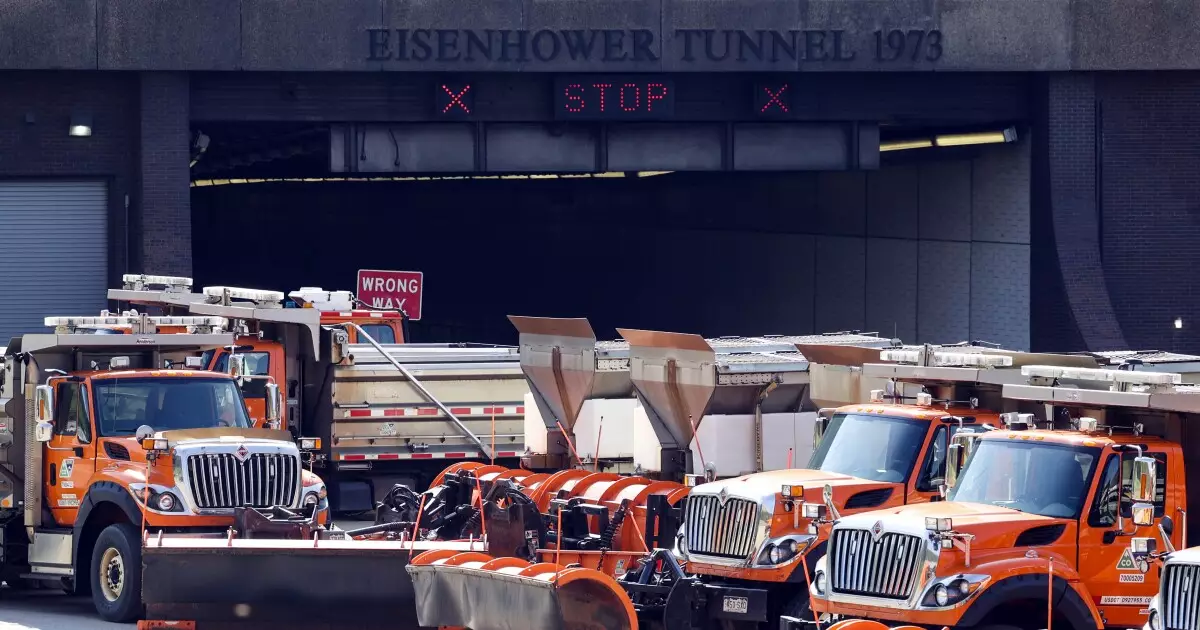The Colorado Statewide Bridge and Tunnel Enterprise (BTE) is preparing to issue a noteworthy $212.45 million in revenue bonds, a move that finds itself in a rather precarious legal and financial landscape. This issuance comes on the heels of upgraded underlying ratings, potentially offering investors a sense of security despite the looming threats posed by ongoing litigation linked to Colorado’s Taxpayer’s Bill of Rights (TABOR). For those who have followed the evolution of the BTE since its inception in 2009, this latest development marks a pivotal moment—one that underscores the complexities of infrastructure financing against the backdrop of stringent fiscal regulations.
The BTE’s creation was rooted in a pressing need for a dedicated funding mechanism to finance and maintain Colorado’s bridges. It was an innovative response to persistent infrastructural challenges, brought into being by the Funding Advancement for Surface Transportation and Economic Recovery (FASTER) Act. However, the expansion of its role to include tunnels in 2021, alongside a complex web of revenue-generating measures, has drawn increasing scrutiny. While the BTE generates funds through a bridge safety surcharge on vehicle registrations—an arguably reasonable solution to bridge safety concerns—its reliance on these fees amidst a backdrop of legal challenges is troubling.
The Legal Landscape: A Continual Challenge
A lawsuit initiated by Americans for Prosperity seeks to challenge the BTE’s fee collection process, arguing it circumvents the restrictions that TABOR imposes on tax and fee increases. This legal battle serves as a reminder that the fiscal landscape in Colorado is fraught with contention. Considering that TABOR is the most restrictive tax and expenditure limitation law in the nation, it raises serious questions about the sustainability of governmental enterprises like the BTE that operate outside its confines.
The trial court’s dismissal of the plaintiffs’ case without a hearing this past April did not eliminate the issue but rather elevated it to the Colorado Court of Appeals—a move that could very well determine the BTE’s operational viability moving forward. If the appellate court sides with the plaintiffs, the existing revenue streams could be severely undermined, leaving the BTE scrambling for alternative funding sources to meet its obligations.
Relying on Controversial Revenue Streams
Considering the BTE’s projected revenue of $116 million from the bridge safety surcharge slotted for fiscal 2025, the situation becomes precarious when weighing the outcomes of ongoing litigation. If the court rules against the BTE, it could find itself in a situation where promised revenues turn out to be elusive, thereby impairing its ability to service the very bonds it seeks to sell.
Furthermore, the introduction of an impact fee on motor fuels and the retail delivery fee—measures that were intended to stabilize revenue—raise questions about the fairness of burdening consumers with incremental costs during periods when financial literacy and economic sensibility are already strained. With fees like these, it feels as if the state is grasping at straws to generate necessary funds while adopting a tactic that skirts around direct taxation.
Political Implications and Public Sentiment
The implications of these developments stretch beyond mere finance and manifest into the political spectrum, echoing louder with each passing year since TABOR’s enactment in 1992. Lawmakers are increasingly vocal about their dissatisfaction with TABOR’s strict limitations, claiming it stymies their ability to govern effectively. Representative Sean Camacho’s recent statement echoes a sentiment held by many who believe TABOR has caused chronic underfunding in critical public sectors.
However, centrist and fiscally-responsible voters should be cautious; rolling back TABOR could open the floodgates to tax increases that could have irreversible impacts on ordinary Coloradoans. Furthermore, the communication gap between the state and its constituents regarding the importance of rigorous fiscal responsibility is widening. The electorate may not fully grasp the necessity of measures designed to bolster infrastructure while facing painful choices about everyday expenditures.
The Dilemma of Future Financing
The BTE’s upcoming bonds come with an underlying rating of AA from S&P and A1 from Moody’s, but these ratings hinge on sustained revenue generation. If Colorado finds itself in a financial crunch due to unfavorable court decisions or the repercussions of TABOR, the BTE may be forced to cut corners on vital maintenance or infrastructure investments. The long-term cost of neglecting the state’s infrastructure could far outweigh the perceived short-term savings derived from restrictive fiscal policies.
In a politically charged atmosphere where operational efficiency and fiscal sustainability must coexist, the fate of the BTE highlights the inherent struggles when funding mechanisms face legal and public relations hurdles. As stakeholders await the appellate court’s decision, one thing is certain: the financial decisions we make today will have echoed repercussions for the future of Colorado’s infrastructure gods. A new dialogue around TABOR, transparency, and fiscal responsibility needs to start—before it’s too late.


Leave a Reply